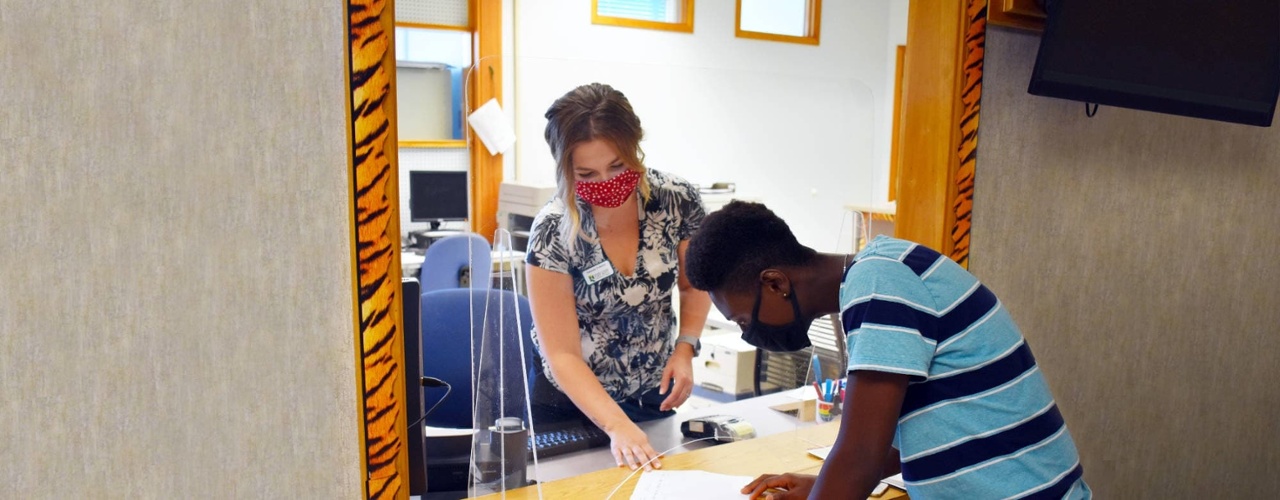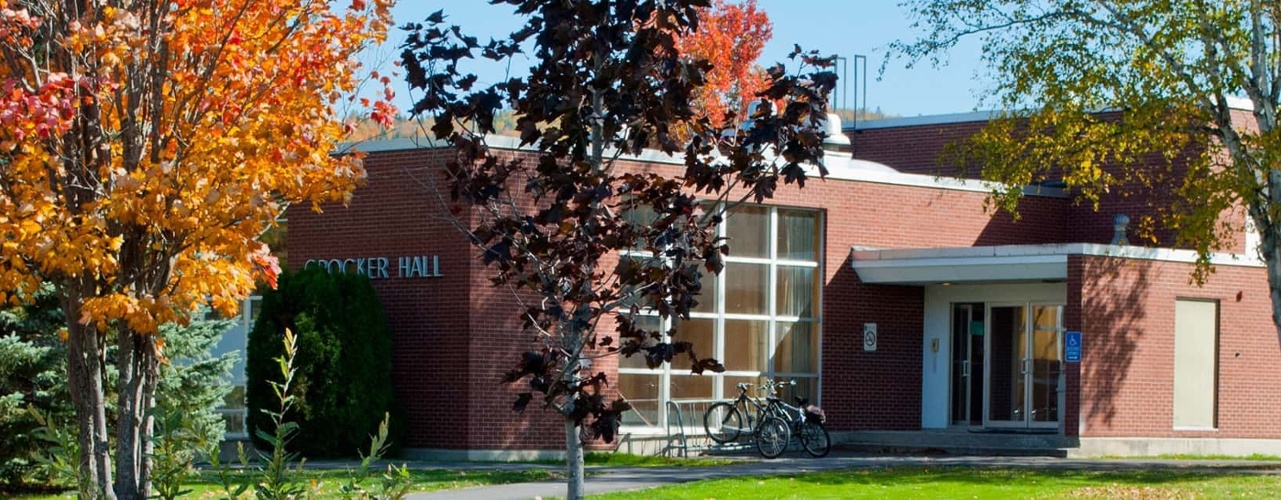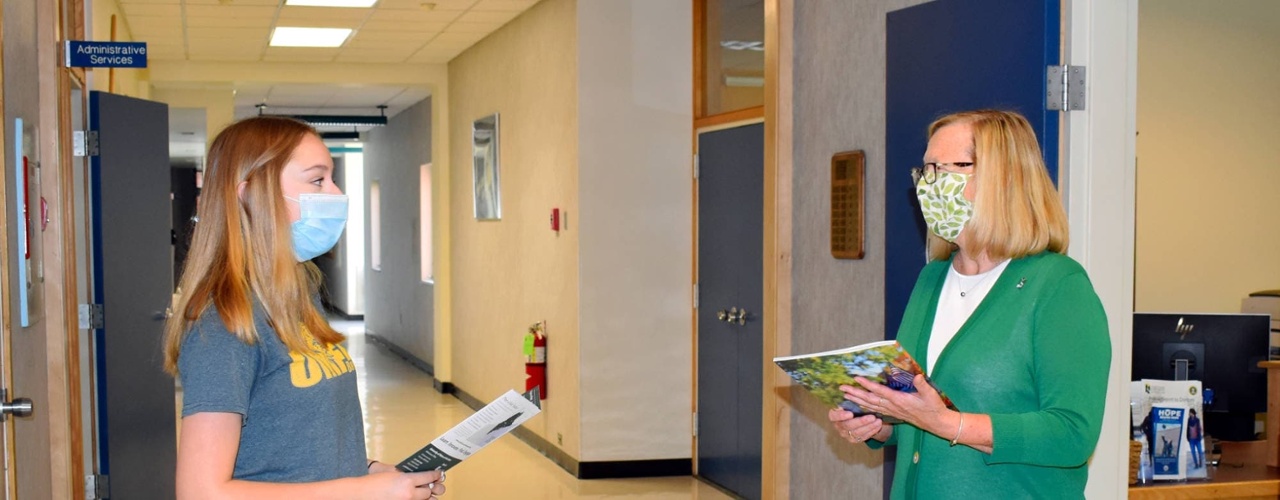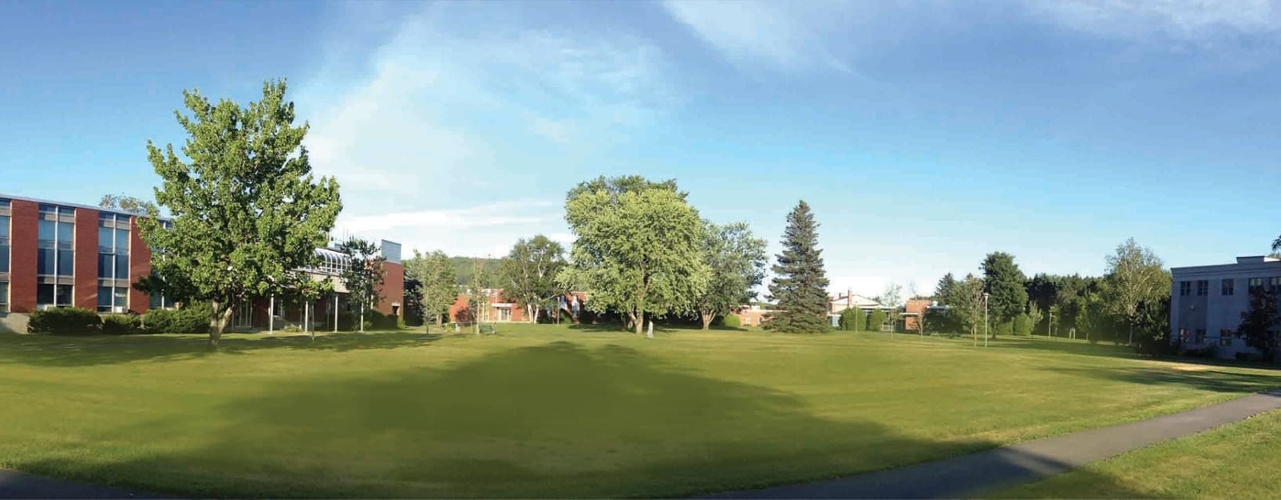
Latest News
UMFK Environmental Studies and Biology Students travel to North Carolina
April 14, 2014
Note: this is an archived news release. As such, the information provided may no longer apply.
NR14033
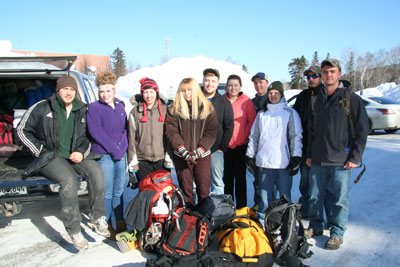
(l to r) Alex Caballero (Orono, ME); Taylor Pelletier (Fort Kent, ME); Heidi Feichter (Barrie, Ontario, Canada); Chandra Von Merta (Limestone, ME); Devon Cote (Connor Township, ME); Melissa Brauning (Berwick, ME); Ray Lewis (Wilton, ME); Liz Gilman (Danforth, ME); Kyle Blake (Searsport, ME); and Cole Porter (Sherman, ME)
Ten students from Env 400 and Bio 339 Senior Projects, and Bio 202 Botany courses spent eleven days on the road traveling to the Outer Banks of North Carolina.
The Outer Banks are famous for Oceanside Mansions, Kitty Hawk, and the Wright Brother's first flight, as well as, Cape Hatteras National Seashore and the Cape Hatteras lighthouse.
The Outer Banks are a system of Barrier Islands that are being affected by climate change and sea level rise. Barrier Islands are islands composed of sand dunes and salt marshes which move as sands shift through hurricanes and other wind events.
The students spent time with naturalists at the Alligator River National Wildlife Refuge hiking and canoeing; did volunteer work for the Nags Head Woods Nature Conservancy Sanctuary; visited Kitty Hawk National Memorial; and hiked beaches and woodlands throughout the Barrier Islands system.
Melissa Brauning, a UMFK sophomore enrolled in the Biology program, stated “It was nice to put Botany and the field work together, it's a trip I'll never forget. It was so nice to meet future teachers and classmates I've never talked to before.”
“The focus of the learning experience was to introduce students to Barrier Islands ecology, its associated vegetation and wildlife, salt water marshes and soils, along with discussions on current research projects and wildlife management efforts in that region,” noted Dr. Bruno Hicks, UMFK associate professor of Education and Environmental Studies.
This trip, along with several others offered throughout the year, is part of the Environmental Studies and Biology curriculum at UMFK.

